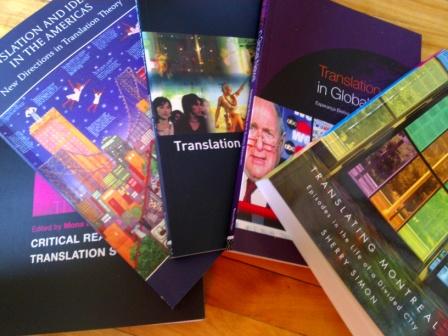Translation and Response between Maurice Blanchot and Lydia Davis
DOI:
https://doi.org/10.21992/T9HS64Keywords:
Maurice Blanchot, Lydia DavisAbstract
When an author translates a text by another writer, this translation is one form of a response to that text. Other responses may appear in their own writings that are more inflected with their authorial persona. Lydia Davis translated six books by Maurice Blanchot, including fiction and theoretical writings. Blanchot’s concept of the récit privileges non-conventional forms of narrative and it can be considered to have influenced Davis, a view shared in critical writing about Davis. However, responses to his fiction can also be found in Davis’s work. This article reads Lydia Davis’s story “Story” as a response to Maurice Blanchot’s récit, La Folie du jour, translated by Davis as “The Madness of the Day”. Both texts develop a narrative that questions the possibility of arriving at a single story: Blanchot’s narrator cannot tell the story of how he came to have glass ground into his eyes, while Davis’s narrator must try to understand a contradictory story told to her by her lover. However, Davis responds to Blanchot by reversing the perspective in the story: where Blanchot’s narrator must and cannot create a story that explains his situation in a judicial/medical context, Davis’s narrator is struggling to understand her lover’s story which does not explain the situation that they find themselves in. Davis’s narrator is therefore motivated by an emotional need to find an acceptable story that is absent from Blanchot’s narrator. This difference in motivation is central to the difference between Davis’s and Blanchot’s approach, and complicates any reading of his influence on her because she responds to his text in her own.Downloads
Downloads
Published
Issue
Section
License
Authors who publish with this journal agree to the following terms: a.Authors retain copyright and grant the journal right of first publication with the work simultaneously licensed under a Creative Commons Attribution License that allows others to share the work with an acknowledgement of the work's authorship and initial publication in this journal. b.Authors are able to enter into separate, additional contractual arrangements for the non-exclusive distribution of the journal's published version of the work (e.g., post it to an institutional repository or publish it in a book), with an acknowledgement of its initial publication in this journal. c.Authors are permitted and encouraged to post their work online (e.g., in institutional repositories or on their website) prior to and during the submission process, as it can lead to productive exchanges, as well as earlier and greater citation of published work (See The Effect of Open Access).



